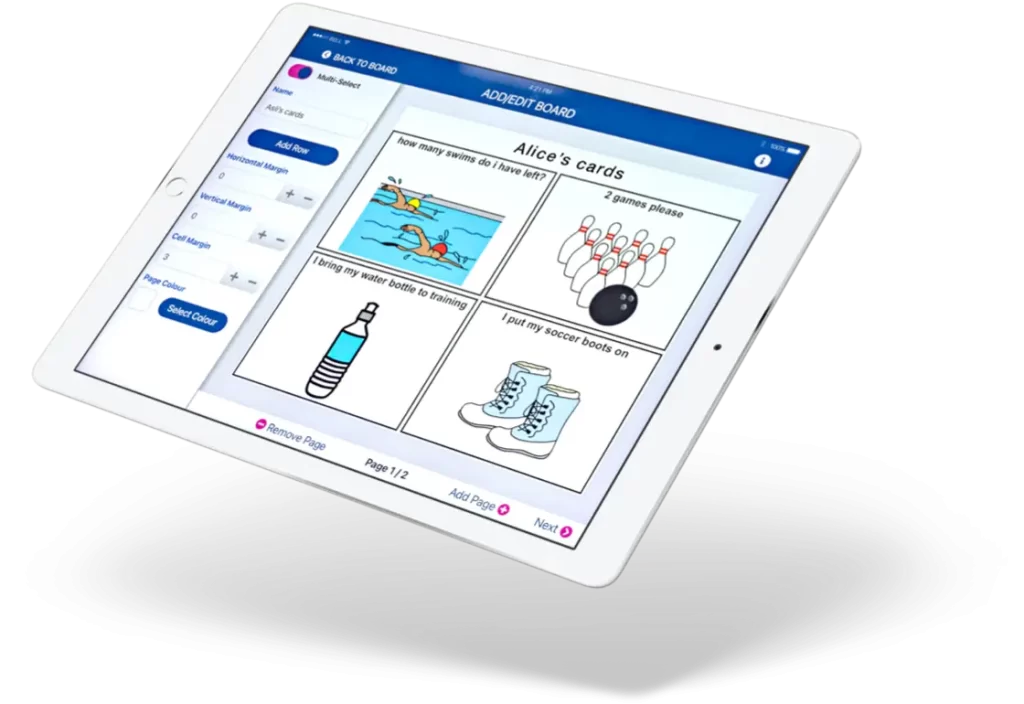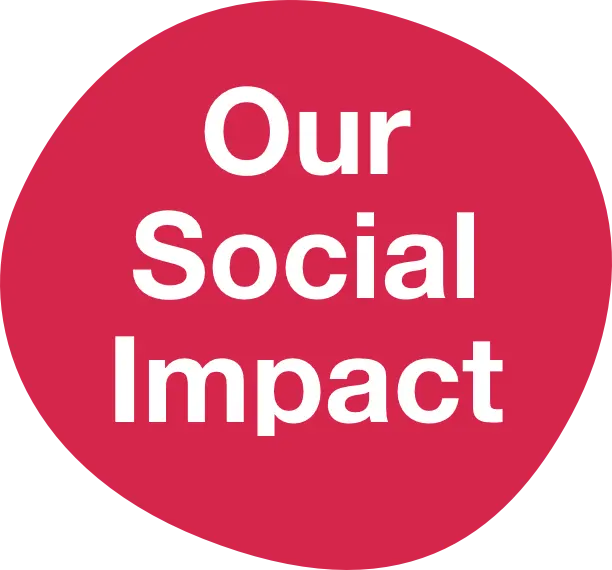Walk and Roll
More people with disability can now enjoy one of Australia’s greatest pastimes – the humble nature walk. Scope collaborated with Victoria Walks to audit a number of walks throughout the state, ensuring they are accessible to people with disability.
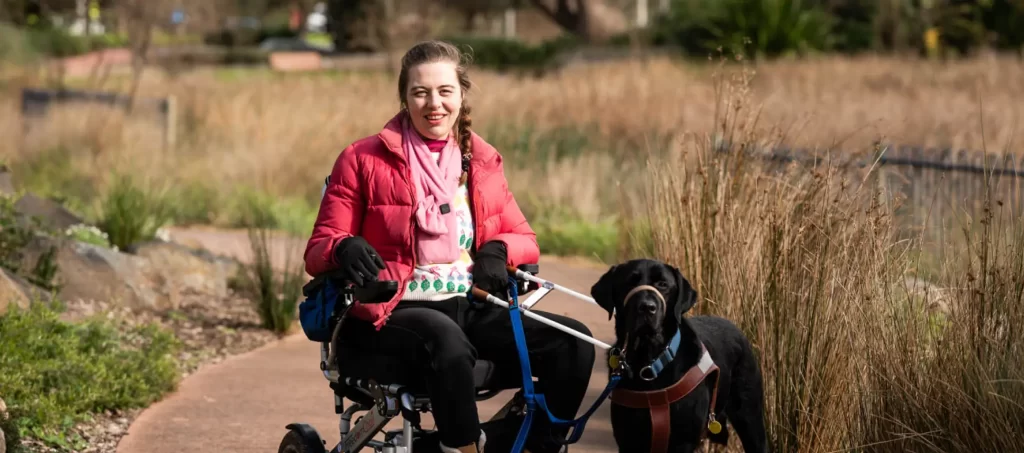
The ‘Walk and Roll’ project saw auditors from Scope with a range of different disabilities working closely with auditors from Victoria Walks to examine every element – from terrain and distance to public transport and accessible bathrooms.
Over three months, 24 walks from Bendigo to Heatherton were determined to be accessible for people with physical disabilities and mapped on Walking Maps.
Morgan Liddle, one of Scope’s auditors, said the collaboration would help people with disability connect with their community and the people around them.
“It’s important for our community parks and walking paths to be accessible and safe for everyone,” Morgan said. “People with disability should have the same opportunities to gather in local parks as the rest of the community.”
To celebrate the launch, people from Mitcham, Lilydale, Boronia and Chelsea Day and Lifestyle Options were invited to Tim Neville Arboretum for an event co-hosted by Scope and Victoria Walks.
Morgan delivered a short address, and was followed by Kate MacRae, Scope CEO, and Ben Rossiter, Victoria Walks Executive Officer, who all discussed the importance of accessible activities.
Audiences then had the opportunity to participate in a short walk around the arboretum.
The launch ‘Walk and Roll’ project generated significant attention, and was featured on ABC News Radio, Triple M, Rangers Trader Mail, Ferntree Gully Star Mail, Bendigo News and Mirage News.
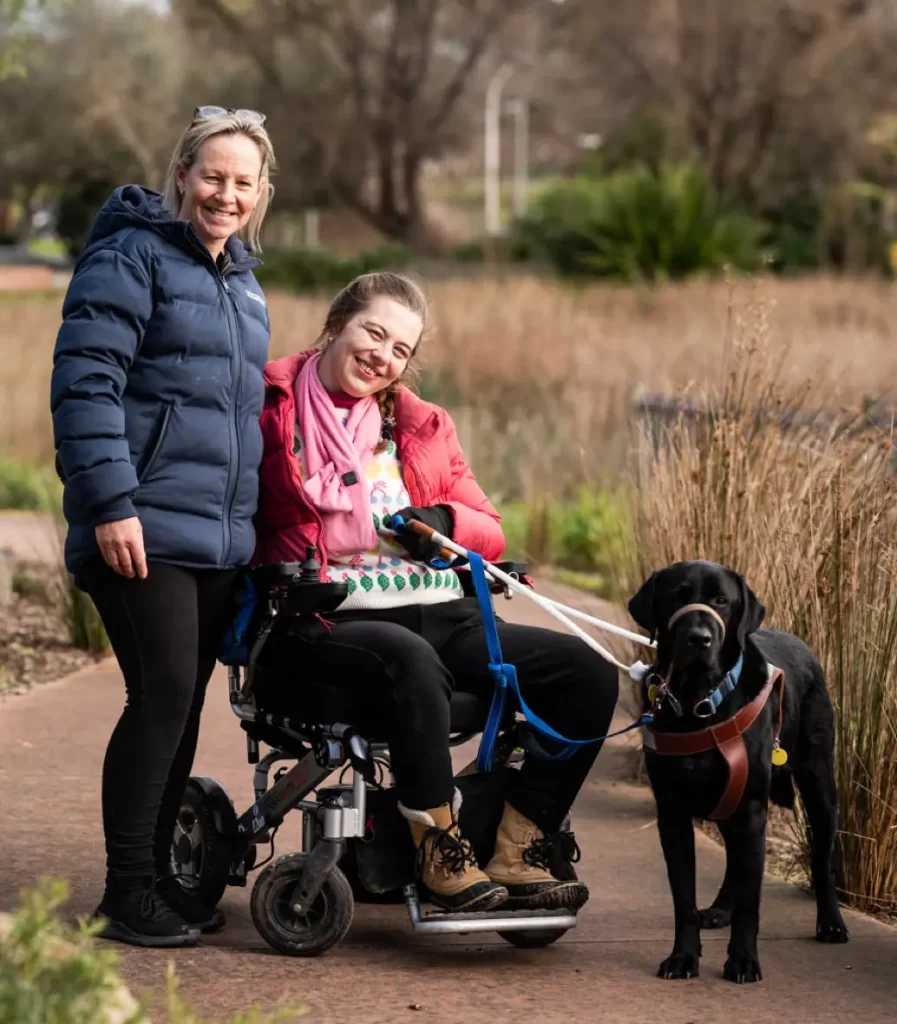
Research
Scope’s research team continue to focus on identifying opportunities activities aimed at improving the lives of people with disability.
Two key areas of research were published this year.
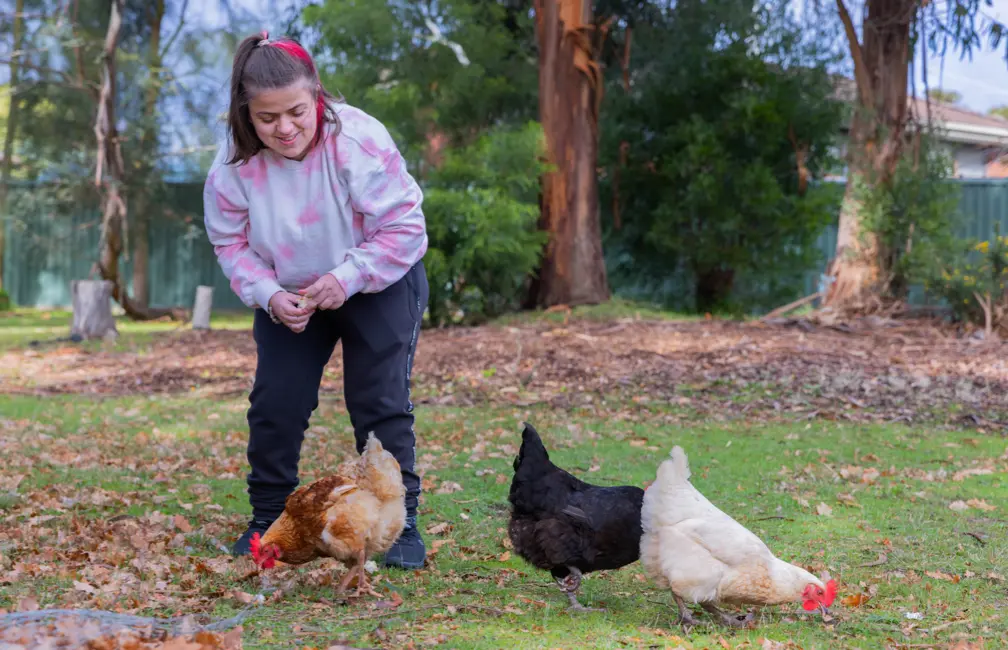
Younger people living in, or at risk of entering residential aged care who are not NDIS participants: Towards living a better life
The aim of the research was to identify what helped and hindered younger people who are not NDIS participants from leaving or avoiding residential aged care (RAC), and the reasons why some choose to stay in RAC.
The research revealed that many younger people who were living in, or at risk of entering RAC had complex or multiple medical conditions, or life-limiting illnesses or palliative care needs.
Although some younger people reported that they were happy in RAC, overall, their wellbeing and community engagement was much lower than the general population. Despite this, many younger people choose to remain in RAC because they feel safe, secure, and cared for.
One of the key issues for this group of younger people is that there is a lack of funding that provides them with the same level of care that is available in aged care. In the absence of funding to address all their needs, the opportunities for them to live somewhere other than aged care homes are very limited.
To address this issue, there is a need for increased funding for the full range of services that younger people who are not NDIS participants need to leave or avoid RAC.
A final report has been produced and a presentation delivered to the Department of Health and Aged Care.
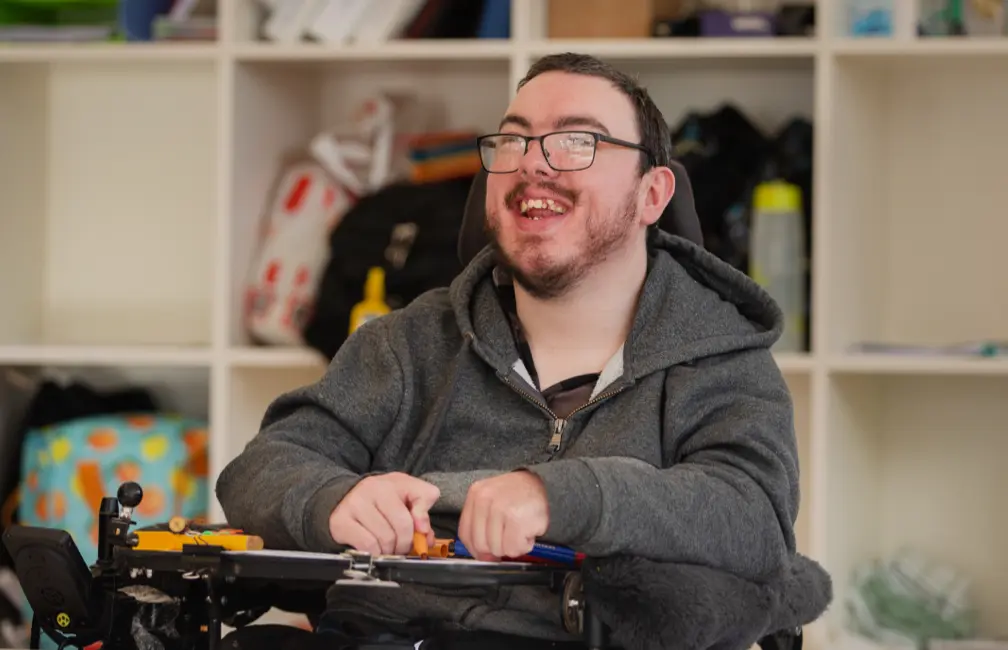
Supports to make individualised living a reality
This research was a collaboration with researchers from the National Disability Insurance Agency (NDIA).
The research aimed to understand the support, skills, and knowledge that facilitate individualised living for people with disability, including what helps and what stops people accessing the supports they need to live how they want.
The findings showed four key insights:
- The need to provide opportunities to explore living options (including access to housing, accessible information, and support to navigate options)
- Enabling people to learn new skills increases confidence
- Having support to practice and maintain skills builds capacity
- Providing flexibility in NDIS plans helps ensure capacity building activities occur at a time a person needs it most.
This research has implications for policy and practice about broadening home and living options for people with disability. A final report has been produced and the results will be shared at sector conferences.
Amplifying the people with disability
In response to the question, “What would you like to tell Australia about your hopes for the future?”, Scope developed and submitted the Aspirations paper to the Disability Royal Commission.
To ensure our submission amplified the voices of people with disability, we conducted two surveys in partnership with Ability First Australia and spoke to Scope clients at face-to-face workshops designed to support their communication access needs. We consulted over 300 people with disability throughout this process, along with 100 family members and carers of people with disability.
Our keystone finding is that the aspirations of people with disability are the same as those of people without disability – but in their daily lives, people with disability encounter ingrained systemic, attitudinal, physical, and other barriers to pursuing their aspirations. Nevertheless, we found many examples at community, group, and individual levels of how people with disability have been empowered to achieve and exceed the goals they set for themselves.
The Aspirations paper was submitted to the Disability Royal Commission in October 2022.
Since submitting the Aspirations paper, the rich data and evidence we gathered has continued to inform Scope’s advocacy. We want to see progress toward equity across all life areas and universal access that creates possibilities for people of all abilities.
This year we also contributed to consultations run by the Victorian and Australian Governments, including the NDIS Review, and these submissions built on the messages from the Aspirations paper.
Our priorities going forward are to see vast improvements in employment, home and living options, and health outcomes for people with disability, and to ensure that the authentic voices of people with disability are being heard.
Reconciliation Action Plan and The Voice to Parliament
Scope has taken its first steps towards long-term reconciliation with the introduction of our inaugural Reconciliation Action Plan (RAP).
The decision to embark on this journey was in alignment with Scope’s vision of celebrating and empowering our people, including our First Nations people, to belong, thrive and live their dreams.
Our Reflect RAP amplifies this vision and will enable us to create culturally responsive disability supports to assist our clients to live the lives they choose. As part of this ongoing commitment, Scope was vocal in its support of a constitutionally enshrined First Nations Voice to Parliament.
A suite of accessible communication resources, including Key Word Sign graphics and Easy English documents, were created to ensure that all people had the opportunity to learn and make an informed decision about the referendum. An industry leader, Scope was one of the first organisations to create these resources and shared them widely within the sector.
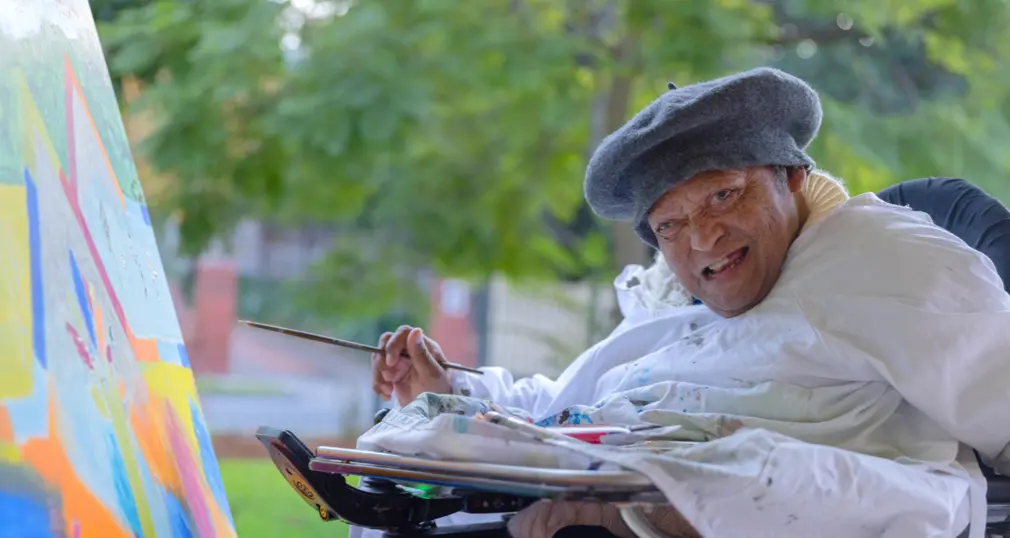
Be Safe Online
Scope’s Communication and Inclusion Resource Centre (CIRC) was pleased to be a recipient of an Online Safety Grant awarded by the eSafety Commissioner.
Scope’s ‘Be Safe Online’ project, aims to address the specific online safety needs of children and young people with communication disability, cognitive impairment and/or low literacy.
Chrissy, a parent, expressed the significance of online resources in helping children with disabilities.
“To have access to these resources online would make an enormous impact because they may include useful tools like visual aids, and the wording would be prepared in a way that children with a disability can understand.”
This project aims to alleviate the pressure on parents by improving communication about important online safety concerns.
The project officially commenced in November 2022 and has reached several key milestones.
These include:
- The completion of the planning phase and establishment of a project team.
- A comprehensive review of existing eSafety resources, revealing a gap in eSafety resources in accessible formats such as Easy English.
- Multiple consultations with young people with disability, parents and educators and have conducted to explore current online experiences and highlight important eSafety topics.
The digital environment can be a great equaliser for young people with disability, as it can have a destigmatising effect for those who might otherwise be left out. Technology can help break down barriers encountered in the physical world, enabling communication and socialisation with their peers, combatting isolation, presenting opportunities to join communities of interest, play games, and access to information and services.
Scope’s CIRC team has applied a co-design approach to this project, actively involving people with a lived experience of disability and their families, to ensure that the online safety resources are tailored to their specific needs. By incorporating their input, the team aims to create a final outcome that truly reflects the preferences, perspectives and requirements of the intended users.
Tools2Talk Now App launched
Tools2Talk Now is an innovative app developed by Scope, enabling users to quickly and easily create printable communication aids with customised vocabulary and images.
Through the App families, educators, Speech Pathologists and communication partners can create communication tools and resources for people with communication disabilities.
Key features of the app include:
- Templates for quick creation of communication boards
- Ability to create customised communication resources using a person’s own photos from their camera roll
- A calendar function and extended editing features
- Voice output ‘chat’ feature to support learning
- Annual Subscription allows access to over 35,000 Tobii Dynavox Picture Communication Symbols® (PCS) and full COMPIC image library
- Ability to create unlimited boards and calendars
As the app evolves, Tools2Talk Now will be made available on iPads used by therapists and disability support workers working within Scope internally.
Support will be provided to these staff members to use the app to design appropriate communication aids for their services, and to implement the communication aids so that they are as effective as possible.
